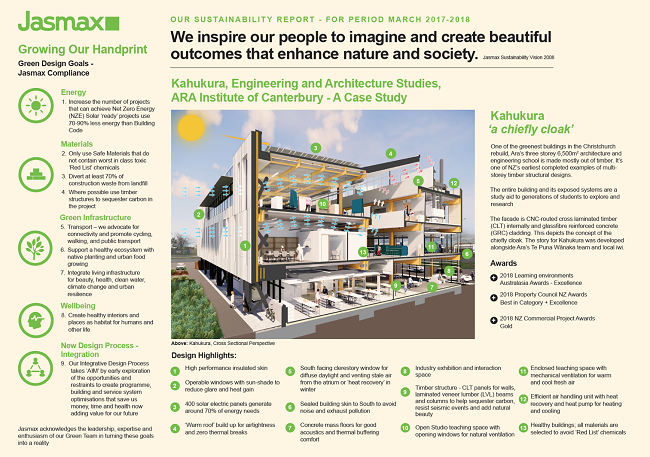Guest blog: Reporting – sticking to the basics
Calum recently co-presented for an SBC Brilliant Basics webinar on sustainability reporting. Wondering where to start? Here he talks about the who, what, where, when and how of good sustainability reporting.
Calum recently co-presented for an SBC Brilliant Basics webinar on sustainability reporting (download the slides – PDF, 5MB). Wondering where to start? Here he talks about the who, what, where, when and how of good sustainability reporting.
There has been an increase in the number and type of organisations releasing sustainability and integrated reports in New Zealand. If you are planning to report, or you are an existing reporter, there are some basic reporting elements that will get you heading in the right direction. But before I go into those, some quick context about the current state of reporting.
In the year-ended August 31, 2018, 54 NZ organisations released a formal sustainability or integrated report. Over 70% reported using a recognised framework such as GRI or
A key discovery in Proxima’s analysis of listed reports on the NZX, is that while only accounting for 20% (34) of the total number of listed entities, they represent over 75% of total market capitalisation. More detail about the state of reporting and reporting practices can be found in our guide Towards Transparency, available from our website from November 1.
I advise all organisations to start their reporting process by figuring out why they are reporting. What is the purpose of reporting for them? A different way of framing that question is to take the accountability test – to whom are we accountable, and for what? This is usually a powerful conversation starter and may open up further questions on the purpose of your business i.e. why do you exist and how do you create value?
Having clarity on why you are doing reporting and who your audience is may seem obvious, but in my experience may often be overlooked. Aim for a depth of understanding and shared agreement on these key questions before embarking on your reporting journey – it’ll make more sense of the journey you’re on.
Your reporting should be focussed on your material topics. These are the topics that you can justify as being critical for disclosure because of their impacts and level of stakeholder concern about them. The GRI 101 Foundation Standard (PDF, 443KB) provides a very robust starting point for any organisation undertaking a materiality assessment. Your reporting should also include suitable context to assist report users in making assessments about the information you present in your report.
Ultimately your reporting is an opportunity to present your view on sustainability, how you define success and your strategy to achieve it. The performance measures you report on are part of a much richer picture, including the management framework you operate within and the goals you have set. Two organisations which do this well are New Zealand Post (PDF, 5.7MB) and Air New Zealand (PDF, 11.7MB).
When thinking about how to report – always empathise with your audience. Really get into their shoes to establish how the content will be communicated. After going to all that effort to create useful and meaningful content, confining it to one pdf file on the web may not do it justice to achieve the outcomes aligned with your purpose for reporting. So I recommend using layers of information such as the format employed by DB Breweries. Don’t be afraid to be creative and distinctive to get your report read. Take a leaf out of the latest Jasmax report, designed to be read in poster form and only 2-pages long!
Three key areas that all New Zealand reporters can work on are providing sufficient context, presenting information in a systemic or integrated manner and taking a longer term and forward-looking outlook. Such an outlook should be strongly referenced to their sustainability governance to demonstrate ownership and accountability of their sustainability agenda.
Calum Revfem is Executive Director of Proxima.
Contact: Calum Revfem, Executive Director, Proxima
Phone:
Email:

